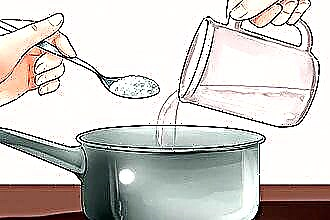Diseases of the cardiovascular system are one of the most common reasons for seeking medical attention, and pain in the heart and palpitations are the most frequent complaints of patients. Many people, having felt such unpleasant sensations in the chest, immediately take various medications. This practice aggravates the situation. Remember that only a doctor can make an accurate diagnosis. Very often, these symptoms are signs of diseases of other organs.
Why do tachycardia and heart pain appear?
First of all, attention is paid to risk factors. They are not sources of cardiovascular disease, but they significantly increase the likelihood of developing them. Among them are:
- overweight;
- arterial hypertension;
- diabetes mellitus and other endocrine pathologies;
- sedentary lifestyle;
- bad habits (alcohol and smoking);
- cardiovascular diseases in the next of kin.
And now let's analyze the sources of cardialgia against the background of a rapid heartbeat.
Cardiac causes:
- ischemic heart disease (including myocardial infarction);
- aortic aneurysm;
- pericarditis;
- myocarditis;
- endocarditis;
- congenital heart defects;
- arrhythmias.
Extra-Heart Sources:
- osteochondrosis of the thoracic spine;
- hernia of the vertebrae;
- intercostal neuralgia;
- myalgia of the intercostal muscles;
- lung abscess;
- pleurisy;
- pneumonia;
- peptic ulcer;
- gastroesophageal reflux disease;
- hernia of the esophagus;
- acute pancreatitis.
How to identify the source of symptoms
Chest pains differ in character, localization, duration, and radiate to different parts of the body. Tachycardia is distinguished from the sensations of interruptions in the work of the heart, which occur with arrhythmias. Let's see how these symptoms manifest themselves in various diseases.
Most often, heart pains indicate angina pectoris. The character is aching and pressing, the attacks occur quickly, last from two to twenty minutes and just as suddenly disappear. Provoked by physical exertion and emotional stress. With a heart attack - more acute, stabbing and lasting longer than 40 minutes, suffocation and fear of death occur.
Endocarditis and other inflammatory diseases are also characterized by rapid heart rate and severe pain. They are accompanied by fever, tremors and general weakness. With arterial hypertension, there are sensations of squeezing, dizziness, nausea, vomiting, tinnitus, headache. Valve defects are manifested by the following symptoms of heart failure: fatigue, shortness of breath, cyanosis, tachycardia, and chest pain. With dissection of the aortic aneurysm, a sharp sharp pain occurs, which often leads to loss of consciousness. The skin becomes pale and covered with sweat.
With arrhythmias, a feeling of an irregular heartbeat appears, the heart rate either increases or decreases. At times, the heart seems to freeze, or vice versa, it seems that it is ready to escape from the chest.
Heart pain and tachycardia are also manifested due to extracardiac pathologies. In diseases of the spine, the pain is usually acute and intensifies during movement and breathing, which resembles angina pectoris. However, it is not removed by taking "Nitroglycerin". Respiratory diseases are accompanied by productive cough, shortness of breath, fever. Peptic ulcer or reflux esophagitis - nausea, vomiting, heartburn, attacks usually develop after ingestion of spicy and fatty foods. With myositis and neuralgia, the pain is sharp and intensifies with deep breathing, with bending to a healthy side.
Treatment
Usually chest pain of cardiac origin goes away when taking "Nitroglycerin". It dilates blood vessels and improves blood flow to the heart. They also take Validol or Corvalol. In some cases, herbal sedatives help - tinctures of valerian, hawthorn, motherwort. If the pain persists for 20-30 minutes, it is recommended to call an ambulance.
For extracardiac causes, the above medications will not help. You need to see a doctor in order to establish an accurate diagnosis and prescribe the appropriate treatment.
The range of drugs to combat tachycardia:
- beta-blockers ("Bisoprolol"). Contraindicated in bronchial asthma and pregnancy;
- calcium channel blockers (Verapamil, Diltiazem);
- antagonists of sodium channels ("Ritmilen").
Conclusions
Severe heart pain, like tachycardia, is the most common complaint in diseases of the cardiovascular system and a number of other pathologies (stomach ulcer, osteochondrosis or intercostal neuralgia). Due to the huge range of factors leading to the occurrence of such symptoms, a thorough diagnosis is carried out. In some cases, these signs indicate acute conditions requiring urgent medical attention. For more information on why tachycardia occurs and how to deal with it, read the article at the link.



